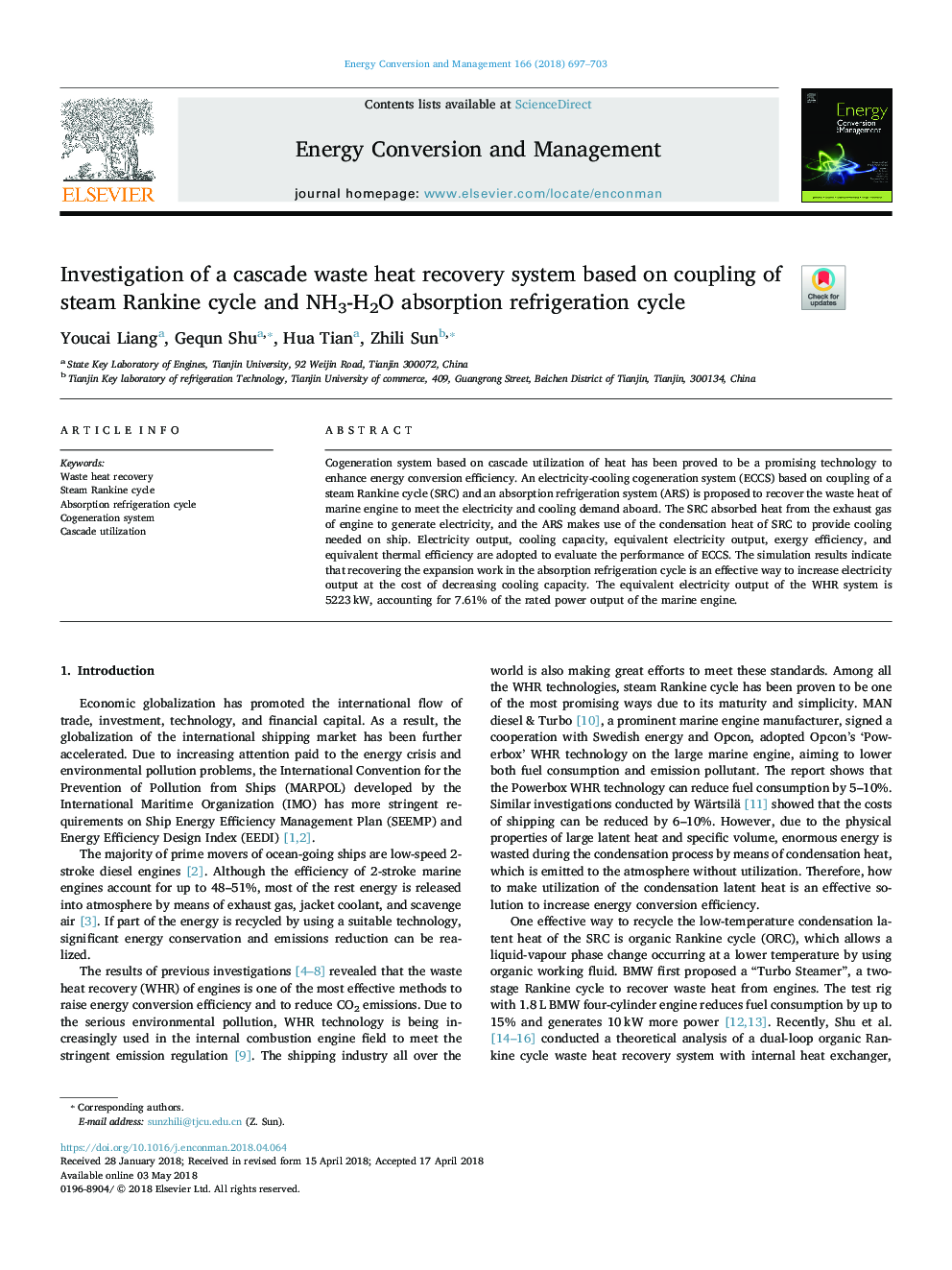| Article ID | Journal | Published Year | Pages | File Type |
|---|---|---|---|---|
| 7158461 | Energy Conversion and Management | 2018 | 7 Pages |
Abstract
Cogeneration system based on cascade utilization of heat has been proved to be a promising technology to enhance energy conversion efficiency. An electricity-cooling cogeneration system (ECCS) based on coupling of a steam Rankine cycle (SRC) and an absorption refrigeration system (ARS) is proposed to recover the waste heat of marine engine to meet the electricity and cooling demand aboard. The SRC absorbed heat from the exhaust gas of engine to generate electricity, and the ARS makes use of the condensation heat of SRC to provide cooling needed on ship. Electricity output, cooling capacity, equivalent electricity output, exergy efficiency, and equivalent thermal efficiency are adopted to evaluate the performance of ECCS. The simulation results indicate that recovering the expansion work in the absorption refrigeration cycle is an effective way to increase electricity output at the cost of decreasing cooling capacity. The equivalent electricity output of the WHR system is 5223â¯kW, accounting for 7.61% of the rated power output of the marine engine.
Keywords
Related Topics
Physical Sciences and Engineering
Energy
Energy (General)
Authors
Youcai Liang, Gequn Shu, Hua Tian, Zhili Sun,
